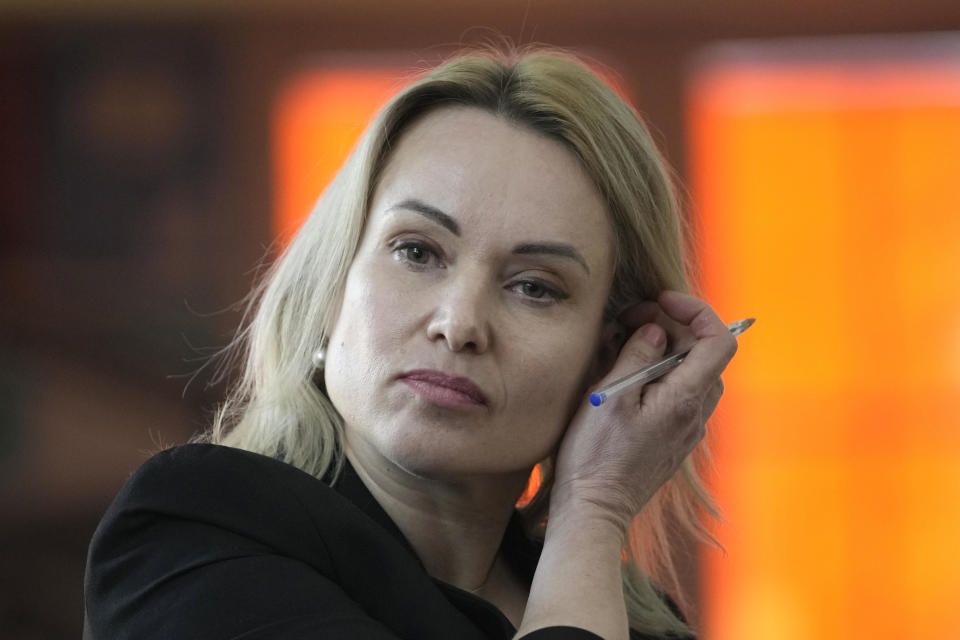Russian journalist who protested war on TV possibly poisoned in France

Paris prosecutors have opened an investigation into the suspected poisoning of a Russian journalist who made headlines last year when she brandished an anti-Ukraine war slogan on state television.
Marina Ovsiannikova reportedly told police that she felt unwell when she opened the door to her Paris apartment Thursday and noticed a powder substance. Forensic police were sent to examine her home.
Paris-based Reporters Without Borders (RSF) secretary general Christophe Deloire reported on social media that the journalist was feeling better by the afternoon but was still under medical supervision.

The international non-profit was instrumental in getting the 44-year-old journalist and her 12-year-old daughter out of Russia late last year, when she fled in fear for her life.
A reporter at the Perviy Kanal television channel, Ovsiannikova became an instant pariah in Russia in March 2022 when she appeared behind a news anchor on screen brandishing a placard about the Ukraine war, bearing the words: "Stop the war, don't believe the propaganda, they are lying to you here."
Just last week, a court in Moscow sentenced Ovsiannikova to 8 1/2-years in prison in absentia for protesting the war.
In 2022, Russia passed a law under which anyone it deems to have spread "false" information on the war in Ukraine can face up to 15 years in prison.
Top critics of the Kremlin have been handed lengthy prison terms, independent news sites have been blocked and independent journalists have left the country, fearing prosecution.
Among the most prominent dissidents jailed in Russia is opposition leader Alexey Navlany, whom a Russian court convicted of promoting "extremism," extending his already-lengthy time in prison by 19 years.
Navalny spent five months in Germany recovering from a poisoning that he blamed on the Kremlin — a claim Russian officials have always denied.
NYT Cooking recipe for a childhood favorite, frosted sugar cookies

